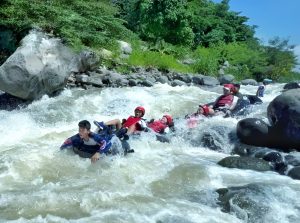After a relaxing two weeks of home quarantine spent watching episode after episode of Chinese and Korean movies on Netflix till the wee hours of the morning, I decided to go over my collection of books this third week and choose what to read this time around. On top of my pile of dusty books is the University of the Philippines Dictionary for Filipinos which is touted as “the only dictionary of its kind in the Philippines.” Indeed, it is a useful reference and guide for Pinoy students, teachers, parents, supervisors, executives, leaders and even beauty pageant contestants.

“The University of the Philippines Cultural Dictionary for Filipinos is a handy reference to the concepts and ideas that constitute the common body of knowledge and understanding which informed Filipinos actually share or ought to share as fellow citizens. It is by definition a dictionary of what every Filipino should know to be culturally literate: to be able to follow and take an active part in the public discourse and discussion on various topics and issues that are reported daily in the mass media and talked about by informed Filipinos in their meetings and conversations. It is a common vocabulary that makes possible more effective interaction and communication among Filipinos as they endeavor to solve common problems, make decisions affecting their lives, and achieve progress for the common good, and in search of the Good Society…We hope that this book will also contribute in some way to moral literacy and effective citizenship,” so wrote Jose P. Abueva, the 16th President of the University of the Philippines and a 1962 TOYM awardee for Political Science who devoted much of his career in the academe. Abueva is a Professor Emeritus of Political Science and Public Administration at the U.P. Diliman Campus; and is a strong supporter of Federalism and Parliamentary Government for the Philippines.
“To have common ideals and aspirations and to share a common history, culture and language, beyond our many differences as Filipinos, are what make us a nation, distinct from other nations…It is our awareness of our cultural heritage and shared destiny that makes us the Filipino nation, ang Bayang Pilipino.”
Abueva bewails the fact that not all Filipinos have the stock knowledge and understanding “because many of us have not attained cultural literacy or high universal literacy.” He explained, “When we speak of ‘cultural literacy’ we specifically have in mind the degree of knowledge and understanding that should be achieved by those who have reached third or fourth year at a good high school or up to first and second year college. It is this knowledge, information and understanding that the authors of the U.P. Cultural Dictionary for Filipinos have tried to capture in 31 sections and 861 pages of text.”
Abueva further explained that as citizens of a “developing and democratizing society” we must be culturally literate as the 21st century has become “more complex, interdependent, increasingly based on information and knowledge, and rapidly changing.” “Social learning” has become a necessity in the emerging global civilization. Decades ago when I was still studying in Tokyo, the Japanese were already discussing about the concept of globalization and global learning in a world without barriers.
In this difficult time of the COVIDA-19, we citizens of the Philippines still find it difficult as a whole to function in an informed way in defining and solving a common problem that is the corona virus pandemic. How hard it is for us to make progress together as one. Indeed, there are disparities among Filipinos in income, wealth, power, education, access to information, participation in politics and public affairs, and opportunities for improving lives in general. As Abueva pointed out, our people’s cultural literacy is severely constrained by widespread poverty, decline of quality education, displacement of reading by radio, television and the heavy reliance on technological gizmos and mechanical gadgets.
In a facebook posting, in these trying times there are still those unthinking neighborhood tambays who play basketball together without a clue on the required social distancing and the necessity of using face masks. And yet, there’s the prominent and supposedly highly educated Senator who breached his quarantine and visited a hospital’s maternity ward and a supermarket without the least care about infecting others. As one posting in facebook reads, “Other countries have higher chances of surviving the COVIDA-19 outbreak not because they have better leaders but because they have better citizens.”
I wonder how many families own a copy of the University of the Philippines Cultural Dictionary for Filipinos by Thelma B. Kintanar and Associates? Its contents include Religion; World Mythology and Folklore; Philippine Mythology and Folklore; Proverbs; Filipino Proverbs; English Idioms; Filipino Idioms; World Literature and Philosophy; Philippine Literary Culture; Literatures in English; Conventions and Forms of English Usage; Communication and Mass Media; Visual Arts and Architecture; Performing Arts, Sports, Dance and Recreation; World History; Philippine History; World Politics; Philippine Government and Politics; Law and Legal Institutions; World Geography; Philippine Geography; Philippine Ethnolinguistic Groups; Anthropology, Demography, Psychology and Sociology; Business and Economics; Physical Sciences; Earth Sciences; Life Sciences; Medicine and Health; Mathematics; Information and Communications Technology; and Technology. It’s a must have book.


